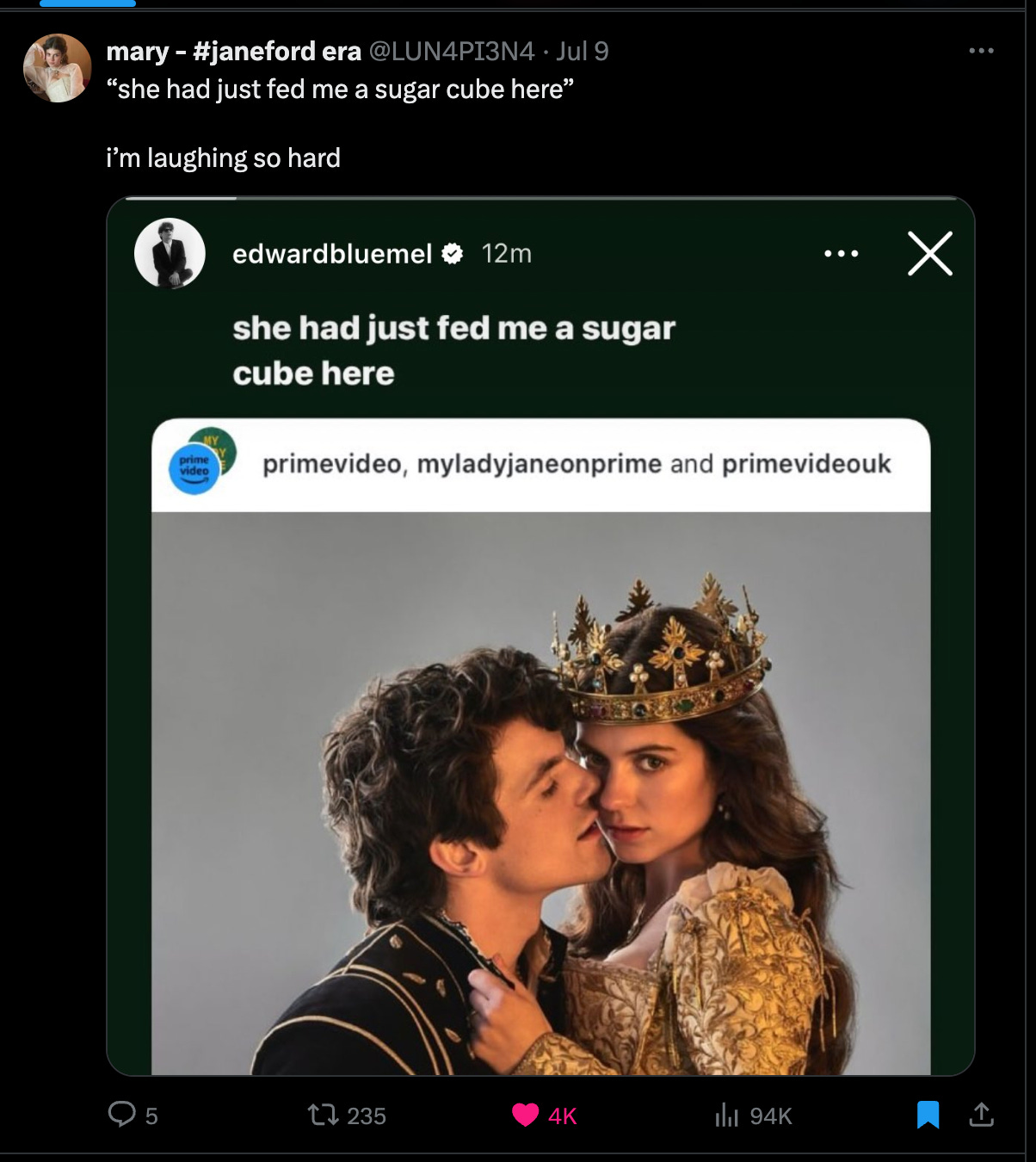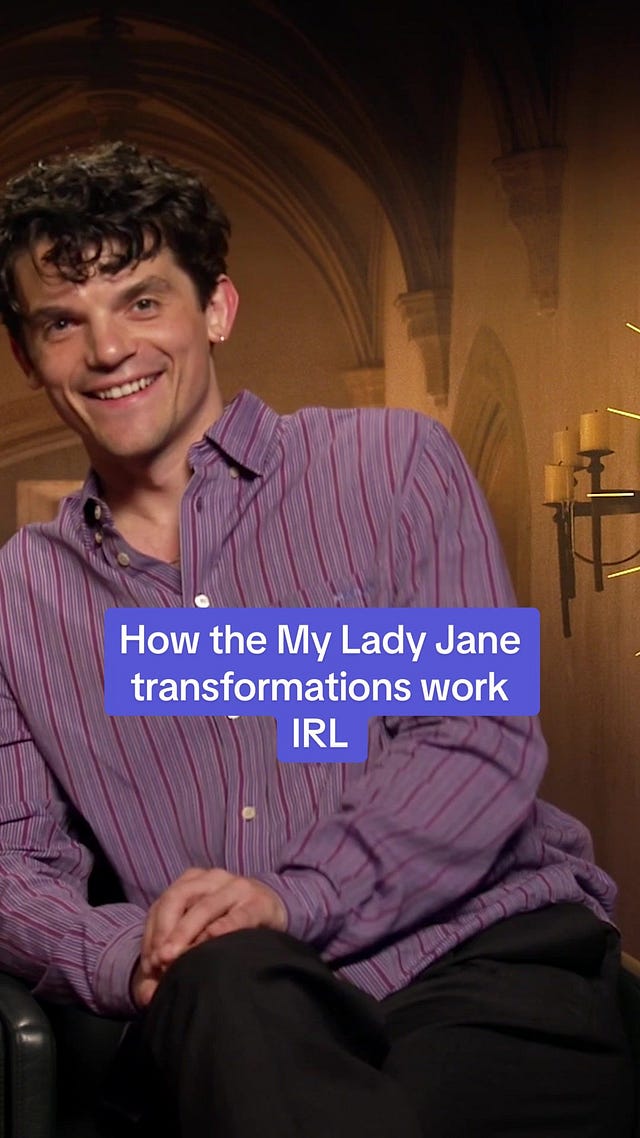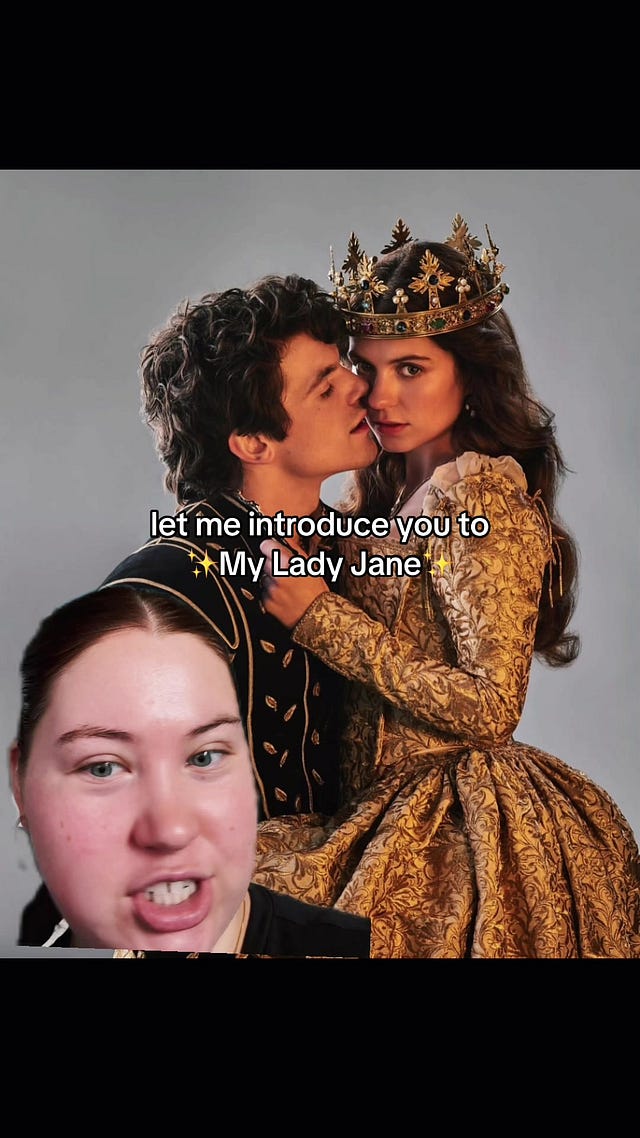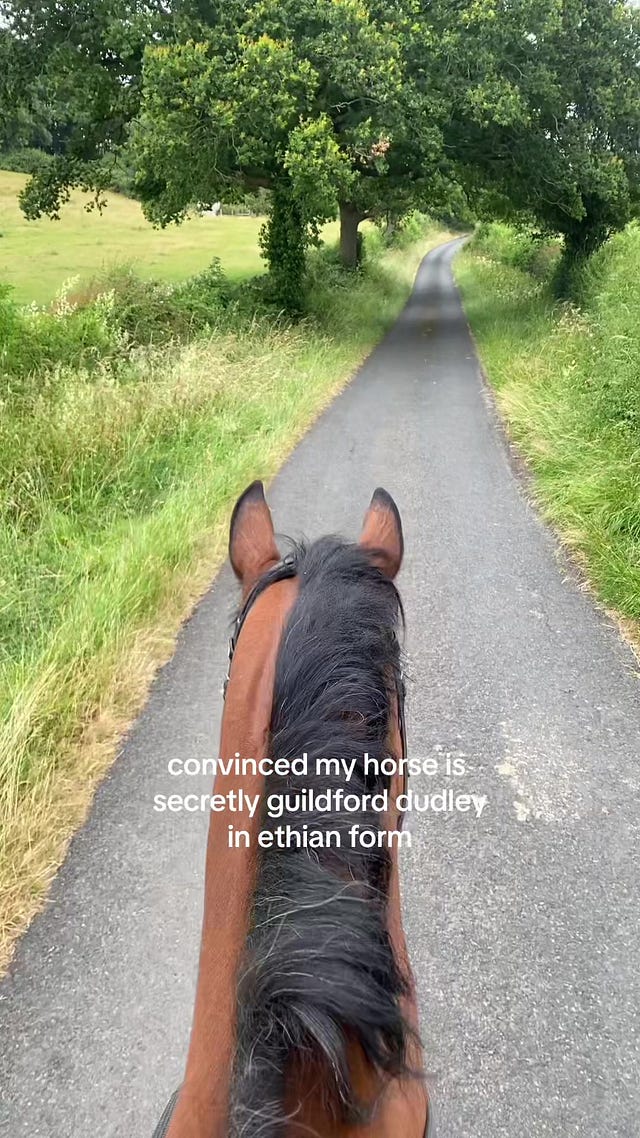“My Lady Jane” Is Giving Tudor History A Feminist Ending
So, here’s the breakdown–spoiler, he turns into an animal!
In a summer that ushered in the third season of Netflix’s fan favorite Regency romance “Bridgerton,” any other period pieces dropped in its wake faced great expectations from audiences. Prime Video’s “My Lady Jane” changes the ending to the tragic real history of Lady Jane Grey, and offers a humorous historical dramedy that is decidedly modern at heart.
Narrated by the hilarious Oliver Chris, the show begins with a young Lady Jane Grey (Emily Bader) discussing her academic aspirations in herbal medicine when she is interrupted by her mother promising her hand in marriage to the elusive Lord Guildford Dudley (Edward Bluemel). Allegedly, he only emerges in the night in rakish fashion which is oh-so-scandalous. As the political drama surrounding the Crown of England unfolds, so does the young couple’s relationship–until Guildford’s mysterious secret is revealed–he can turn into a horse. To quote Lord Dudley Senior, “Don’t say what, say pardon.”
Yes, you read that right. The real Grey was remembered as the “Nine Days Queen” after Mary I deposed her and executed her and her husband Lord Guildford Dudley. Grey was believed to be 16 years old, and Dudley 19 years old. Their execution was later regarded as unduly harsh, and a result of the struggle between Catholics and Protestants in Tudor England. In the world of “My Lady Jane,” this struggle is turned metaphorical through the fictional battle between Ethians (people who can turn into animals at will) and Verity (humans). All the while, women battle for their own autonomy in a world of arranged marriages and the risk of being burned at the stake for one wrong move.
The show offers a refreshing feminist twist on the doomed-arranged-marriage storyline that many period pieces depict. Unbeknownst to Jane at the altar, Guildford actually arranged their marriage due to his interest in her brains–particularly, because he cannot control his Ethian abilities and is hoping she can find him a remedy. Despite his father telling her that “nobody cares” what she wants, Guildford himself proves differently, even offering Jane a way out of their marriage if she manages to solve his Ethian predicament. Without giving too many spoilers, there is a (sort of) happily ever after.
 Tiktok failed to load.
Tiktok failed to load.Enable 3rd party cookies or use another browser
Complete with gorgeous costumes, a rollicking indie rock soundtrack, sharp dialogue, and electric chemistry between show leads Emily Bader and Edward Bluemel, the show offers something for a variety of viewers. And yet still, it brings something entirely different from its fellow fantasy and period shows “Bridgerton” and “House of the Dragon.” The show’s comical and dramatic side plots (including the dalliance between Lady Jane’s mother and her brother-in-law) only enrich the story, but allow the near tragedy of its central characters to shine, an issue that “Bridgerton” faced in its third season. Each respective side plot winds up having an important role in the central storyline, making the season’s conclusion that much richer.
The humorous tone combined with a period piece that illustrates the struggles that marginalized communities face is not new, but very much needed at a time like this. The show’s concept immediately reminded me of 2004’s “Ella Enchanted”, which starred Anne Hathaway and Hugh Dancy on a journey to understand the realm’s most elusive supernatural creatures that laws historically suppressed. “My Lady Jane” is the perfect grown-up version of this film for my fellow older Gen Z viewers, and managed to prove a point–that oppression is a tale as old as time, and systems need dismantling for lasting change.
“My Lady Jane” is now streaming on Amazon Prime Video.








